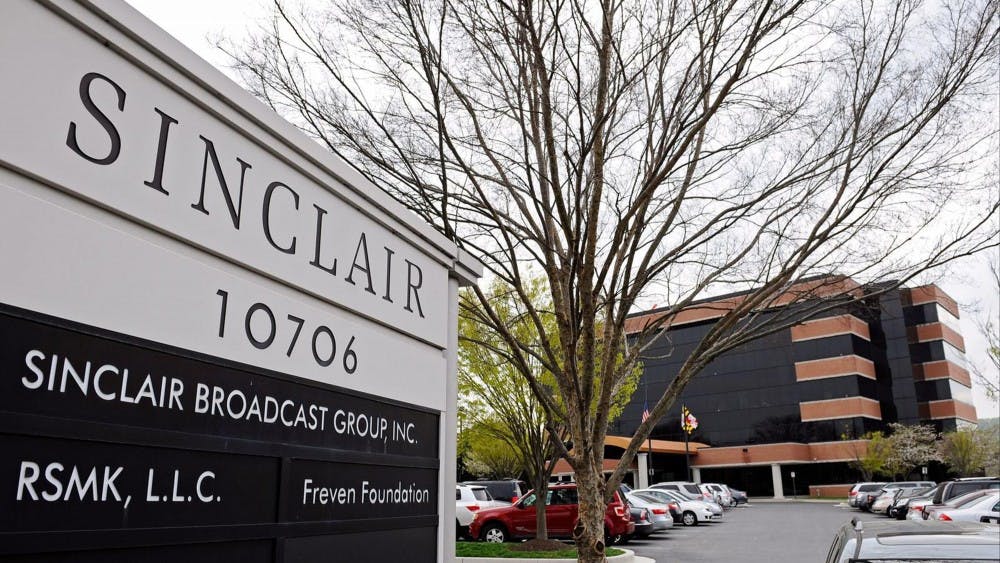Americans have lost faith in the evening news. Fewer than 20 percent of Americans trust national news and only slightly more trust local news. Because of the culture of “fake news” and conspiratorial thinking, media outlets are attempting to combat the dishonest practices and elevate themselves above the controversy.
Even more terrifying is the consolidation of news outlets, meaning that six companies own 90 percent of the media. A recent viral video of local news stations owned by Sinclair Broadcast Group shows how the conglomerate gave a script for the local stations to read in an Orwellian example of why regulation is necessary.
The pro-Trump Sinclair Broadcast company gave a message billed as warning watchers about the dangers of fake news. The shocking part is the verbatim repetition of the message by 193 local news stations, which are all owned by Sinclair and are based all over the country. In an ironic twist, the forced speech recommended viewers keep an eye out for fake news and to essentially be informed consumers of news media. This event represents a new low for journalistic integrity, which is an institution that has sustained a slow death demonstrated by Americans' lack of faith in news.
While the First Amendment of the Constitution does allow freedom of the press, there are some limitations as to what can be broadcasted. The FCC, for instance, regulates all forms of media to censor material that may be considered “indecent” from the public eye. While the FCC remains controversial, especially in terms of recent issues concerning net neutrality, it has the power to stop the oligopoly currently existing in the media sphere.
One of the first times a media monopoly was tackled was in 1945 when Associated Press v. United States ended with a ruling that the Sherman Antitrust Act applied to media. How can Sinclair’s ownership of “200 local stations in nearly 100 markets” not be considered a monopoly in those respective regions?
Title III of the 1996 Telecommunications Act, signed by former President Bill Clinton, allowed for greater media cross-ownership while also recognizing the internet as a media form for the first time. The biggest criticism of the act is, while it promised to create more competition in the telecommunications industry, it resulted in the opposite. Some studies even link current levels political polarization directly to the effects of the Telecommunications Act, asserting that the following consolidation of news companies led to a less-diverse media sphere. The act allows large news organizations to easily purchase smaller ones, thereby creating the current situation with Sinclair.
It is impossible to analyze the current issue without looking at its worst perpetrators. Sinclair Broadcast Group’s empire can reach almost 40 percent of all American households, and they may grow even larger if a merger with Tribune goes through. The media giant was accused of forcing local reporters to read a conservative "anchor delivered journalistic responsibility message” earlier this year, which was proven by the subsequent video. The illusion of local, independent journalism is alarmingly shattered when one sees the hive-mind of journalists spouting from a script in an overlapping tone more suited to the Borg collective.
If the FCC wants to perform its job of protecting American democracy, it needs to start by dismantling sinister corporations like Sinclair. Any group that hides behind the veneer of trusted local news to push a narrative is detrimental both to the already-degraded faith in the media and freedom of the press as an institution.

